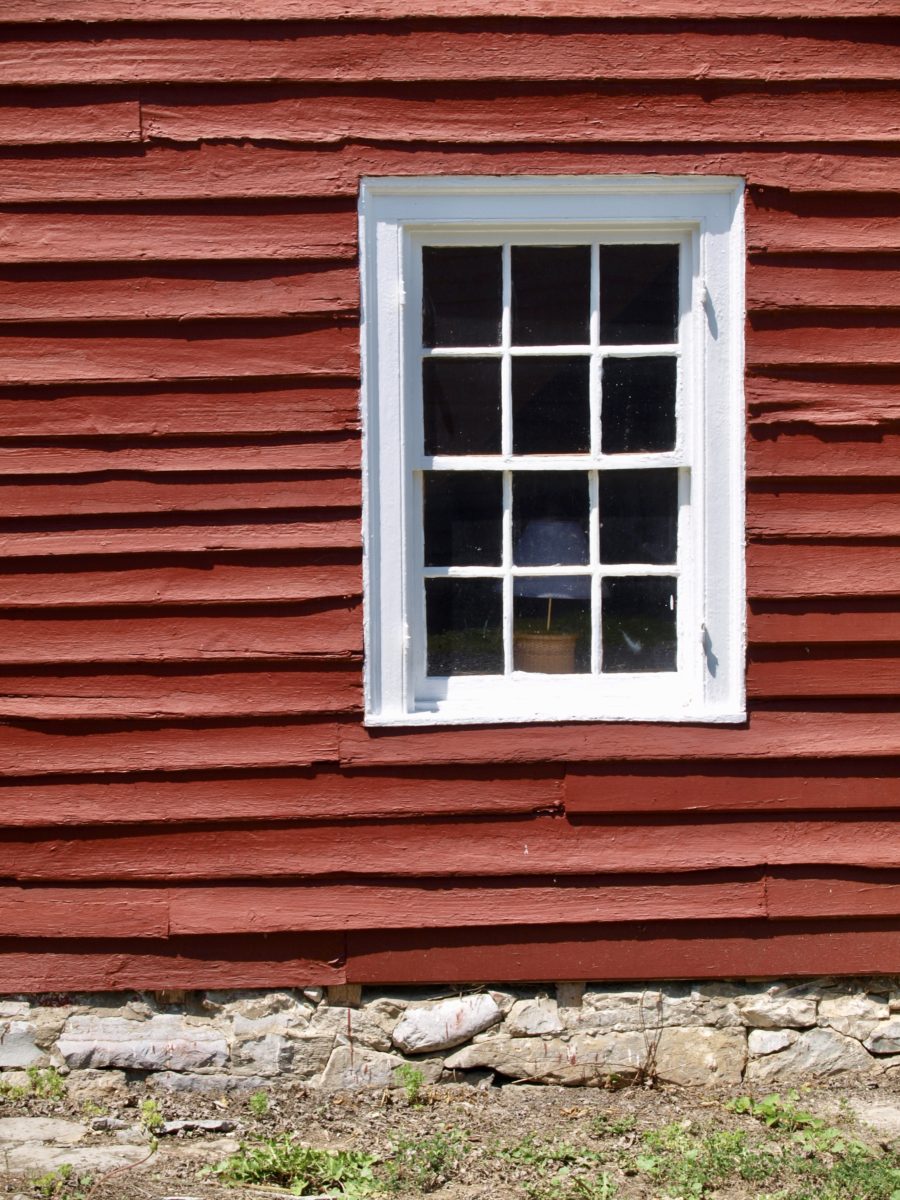I’m growing my hair out. It’s longer, but not long enough to weigh itself down. And in my world that results in flippy bangs. Which are not cool. But they did provide a valuable reminder recently about how to set good foundations.
Flippy Bangs
So I really do like my hair. It has lots of lovely natural wave. It’s thick and full of life (kinda like me—ha!). And if pin curls would come back, I’d be totally set!
But all of those pros definitely work against me, especially in certain conditions. Like humid weather. Or when I’m at an in-between stage of growing out my hair. All of which has been true for the last month or so. My bangs, no matter what I did to them or what product I used, flipped.
And I am usually the one with the camera and (usually) don’t take pictures of my bad hair days, but this one (courtesy of Tim) will give you some idea of what I mean.

I looked like that every day for weeks on end. And I was trying. I really was trying to keep it from happening. I’d leave my bathroom thinking I’d won the battle and my bangs would blend in nicely and within an hour … nothing but curl.
Ugh.
Fixing the Foundations
A couple of day after that picture was taken, I had a hair appointment. My stylist (and friend!) is awesome. She reshaped my hair, commiserated with the wave, encouraged me to hang on (“It just needs more length to weigh it down”) and offered a sample of a product I might try.
I also watched how she styled my hair because she can always get my hair to blend and be smooth. And I spent the next few mornings trying to copy what she did, to see if I could get a similar effect. And while I can never get my hair to be quite as straight as she gets it, I did figure a couple of things out.
The most important of which was that the foundation matters.
The result I get always depends on the foundations that I lay. Click To TweetWhen I slowed down and focused on the layers of my bangs one at a time, things went better. When I pinned back the thick mop on top of my head so I could work with just the lowest layers first, straightening them before moving up, I got less flip on the top layer.
If I slowed down and started at the foundation, I got a better result.
Lessons Learned
You’d think this lesson wouldn’t come as a shock. And it really didn’t. I know that you should always start with the foundation. And if you build a good foundation, you’ll get a better result.
It’s true for hair. It’s true for makeup. It’s obviously true with houses.

The result I get always depends on the foundation that I lay. And yet, in the daily hustle of real life, I let that truth slide. When it comes to my blogging, my work, my relationships, my faith—in almost every area of life—I keep expecting to get perfect results from sloppy foundations.
I can't expect to get perfect results from sloppy foundations. Click To TweetLaying Good Foundations
I was talking to my cousin the other day about this very subject. How to have a hard conversation with someone you love. How it doesn’t get easier over time. How some subjects always have an awkward feel to them.
And yet … we can set ourselves up for better conversations and long-term health in our relationships by doing the hard work first. Setting up a practice of owning our mistakes and apologizing. Learning when to say “Let’s have a chat” and when to say “I need to wait to talk to you about this.”
Those are hard things to do, but doing them, even though they are hard, lays a foundation for the best results possible. Doing those hard things today sets me up for the life and relationship I want to have someday.
How to Set Good Foundations
Of course, we don’t always lay good foundations for ourselves, do we? We spend years in our friendships or marriages throwing down thoughtless words or selfish behaviors. And fixing those messes isn’t fun or easy. But it can be done. We can begin to make changes, today, that will shift the future result in really great ways.
A good way to do that is to work backward toward good foundations. It means looking at that life—the one I want to have someday—and do things today to get that result.
If I want to write a book (which I do), I need write. So I set the foundation of writing every day because it’s the most basic thing that must be in place to get the eventual result I want. Works the same for playing an instrument or learning a new hobby. If you want to be good at that someday, you have to build in the foundation for it today.
Parenting is another good example. Maybe you want to raise good kids. We know parenting is always going to be hard, but we can set ourselves up for that end goal by (1) defining what we mean by the term good kids and then (2) putting into practice one or two small habits that will build to that goal.
Setting Good Foundations
In our house, we’re working on that right now. Over the years, we have allowed our kids to build the habit of leaving their things to be put away in major cleaning sweeps. And it’s not working for us. My kids are great, but they don’t really respect their things, they don’t take care of them, and the bedrooms, living room, and basement look like perpetual disaster areas.
This reality is a direct result of our own choices early on. We did not set good foundations in this area, but having recognized that we don’t want this to continue, we are beginning the process of instituting small habits that we can build, as a family, to get a different, better end result.
You can do this, too. In any area of life (though I don’t recommend doing it in more than one or two areas at a time!).
Start by looking at how things currently are. Ask yourself if this is what you want life to look like. Describe the eventual reality you actually want to have. And then work backward. What must happen to ensure the better result?
Those are the good foundations. Those are the habits and action steps that will build to the life you want. Do those things. Try, fail, give yourself grace, and start again. Because this is real life, and we are all our own brand of mess.
You don’t have to be perfect. You won’t be. You’re simply setting a new foundation that will lead to a better result. It’s not easy, but getting the end result we want is always worth it.
Your Turn: What area would you like to see a different end result? What small habit might make a big change?



